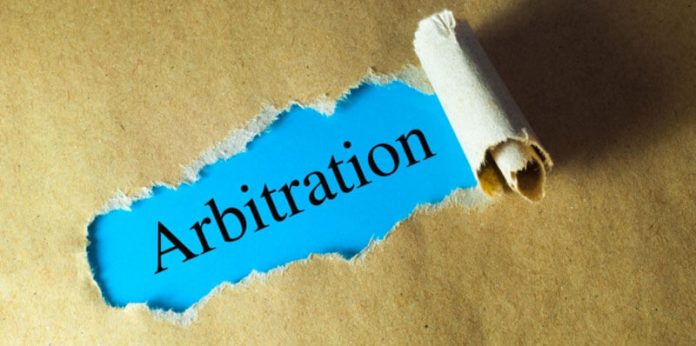This article has been written by Hemani Khadai, pursuing a Certificate Course Arbitration: Strategy, Procedure and Drafting from LawSikho.
Table of Contents
Introduction
Section 9 of the Arbitration and Conciliation Act, 1996 talks about interim relief given to the parties before, during the arbitral proceedings, or after the declaration of an award, but prior to enforcement. It is a temporary relief before a final award is made. A petition for interim relief is filed by any of the parties to the arbitration proceedings, in the High Court of original jurisdiction.
This article discusses at length about, the jurisdiction of the Indian courts to entertain a petition under Section 9 in case of international commercial arbitration, where one of the parties is foreign, and whether a petition under section 9 of the Arbitration and Conciliation Act, 1996 will be entertained when the foreign party does not possess assets in India along with an analysis of the judgment that has been held in support of it.
Whether Indian courts can refuse to entertain a petition under Section 9 of the Arbitration and Conciliation Act, 1996 on the grounds that the foreign party does not possess assets in India?
Such circumstances generally arise when one party is Indian and the other party is foreign, who have chosen a foreign seat of arbitration. For instance, say there is a situation where a foreign seated international arbitration has been commenced and an Indian party files a petition under Section 9 of the Arbitration and Conciliation Act, 1996 before an Indian court seeking interim relief against a foreign party, who does not have any assets in India for securing the amount in dispute. Can the foreign party use jurisdiction and non-existence of their assets in India, as a ground for rejection of petition under section 9 of the Act?
Whether the jurisdiction vested in an Indian court, under Section 2(2) read with Section 9 of the Act to grant interim measures is applicable to foreign parties in international commercial arbitration?
Concerning the jurisdiction of the court in domestic and international commercial arbitration, it is very clearly mentioned under Section 2(2), that the provisions of Section 9 (Interim Measures) of Part 1 of the Act, shall also apply to international commercial arbitration (Part 2). Section 2(2) agrees to the applicability of certain provisions of part 1 on part 2.
“Section 2 (2) : This Part shall apply where the place of arbitration is in India:
Provided that subject to an agreement to the contrary, the provisions of sections 9(Interim Measures by Court), 27 and clause (a) of sub-section (1) and sub-section (3) of Section 37 shall also apply to international commercial arbitration, even if the place of arbitration is outside India, and an arbitral award made or to be made in such place is enforceable and recognised under the provisions of Part II of this Act.”
It was also held in Raffles Design International India Pvt. Ltd. v. Educomp Professional Education Limited that Section 2(2) makes Sections 9, 27, and 37 applicable to the arbitration proceedings held outside India. It was again held in the BCCI v. Kochi Cricket Pvt. case that Sections 9, 27, and 37 are applicable to foreign seated arbitrations.
Hence, the jurisdiction is applicable to international commercial arbitration and parties to it. Subsequently, the Indian courts have also interpreted Section 2(2) to mean that Sections 9, 27, 37 of the Arbitration and Conciliation Act, also apply to arbitration proceedings seated outside India.
Which Indian case brought enlightenment to this issue?
The issue was decided by the Delhi High Court in Goodwill Non-Woven (P) Limited v. Xcoal Energy & Resources Llc case on 9th June 2020. In this case, a Section 9 petition was filed by the Indian party to secure the amount in a dispute against a foreign party who was resisting from performing its part of the agreement. Meanwhile, such an action was initiated by the petitioner, by revoking the ICC-regulated arbitration clause.
Such application was objected to, by the counsel of the foreign party saying that the arbitration under the contract was an international commercial arbitration, seated in New York and so the laws of New York will be applicable to it. The application was vehemently objected to by the counsel on the grounds that the foreign party against whom these reliefs were being claimed was a limited partnership registered in the USA and did not have any assets in India. Hence, it was pleaded that such an application should not be entertained at all.
The foreign party counsel also submitted that the jurisdiction vested in an Indian court under Section 2 (2) of the Arbitration and Conciliation Act, 1996 is asset-based, and only when the assets of the party against which an order is being sought are based in India, then only an Indian court can exercise its jurisdiction.
In this case, the asset-based jurisdiction argument was raised by the foreign party against the interim measure sought by an Indian party in a Section 9 petition, before the Delhi High Court to secure the amount in dispute. Section 9 is read as under:
“Section 9: Interim measures etc. by the Court.
(1) A party may, before, or during arbitral proceedings or at any time after the making of the arbitral award but before it is enforced in accordance with section 36, apply to a court –“
What was held by the Delhi High Court, in this case?
“Para 48, such an argument was rejected by the court for the following reasons :
- Section 9, starts with the words ‘A party’, which denotes, any party can file an application under the said Section.
- For the purpose of passing an interim measure, the availability of assets in India is irrelevant.
- The interim measure under Section 9 inter alia includes an interim measure for securing the amount in dispute in arbitration like directing the foreign party to furnish a bank guarantee in favour of the Indian party; directing the foreign party to deposit the claim amount in this Court, such orders also does not presuppose the existence of asset(s) of a foreign party in India.”
It was also held by the Delhi High Court, that :
“Para 50: That apart, the Court found that it cannot refuse to entertain a petition under Section 9 of the Arbitration Act on the ground that the foreign party does not have any assets in India.”
Hence, it was reiterated by the High Court throughout the judgment, that the court cannot reject the petition under Section 9 for the reason being non-possession of assets by the foreign party in India. This case brought various significant remarks made by the Hon’ble court into light and expanded the scope and responsibility of arbitration.
Views of the 246th Law Commission
Certain amendments were made to the Arbitration and Conciliation Act, 1996 by adopting various significant recommendations made by the 246th Law Commission. The view of the Law Commission behind amending Section 2(2) of the Act, was to overcome a situation in which the seat of arbitration is outside India. The Report explained:
“This proviso ensures that an Indian Court can exercise jurisdiction with respect to these provisions even where the seat of the arbitration is outside India.”
Similarly, it was held by the court in, Goodwill Non-Woven (P) Limited v. Xcoal Energy & Resources Llc, keeping in view the recommendations of the 246th Law Commission that:
“Para 88, Where the assets of a party are located in India, and there is a likelihood that that party will dissipate its assets in the near future, the other party will lack an efficacious remedy if the seat of the arbitration is abroad.”
The High Court gathered that the thought process behind incorporating this proviso to Section 2(2) of the Act is to consider the difficulty faced by both the Indian and the foreign party in seeking interim measures in India in a foreign seated arbitration and facilitate the parties to move to the court in India, even though the arbitration is seated outside India.
Conclusion
It is held in negative that the petition will not be entertained when the assets of a foreign party are not possessed in India. It was further announced by the Delhi High Court, in the case of Goodwill Non-Woven (P) Limited v. Xcoal Energy & Resources Llc, that passing orders under Section 9, if one of the parties is Indian and the other is foreign, does not presuppose and require the existence of assets in India of the foreign party. Considering this, a court cannot refuse a petition under Section 9 on the grounds that the foreign party does not possess any assets in India.
Hence the Indian courts have the jurisdiction under Section 2(2) read with Section 9 of the Arbitration and Conciliation Act, 1996, for granting interim reliefs to the parties in the international commercial arbitration, even if the parties have opted for a foreign seat or place of arbitration is outside India.
References
- Goodwill Non-Woven (P) Limited v. Xcoal Energy & Resources LLC. O.M.P.(I)(COMM) 120/2020 (Delhi High Court),
- Report No. 246, the Law Commission of India.
- The Arbitration and Conciliation Act, 1996.
Students of LawSikho courses regularly produce writing assignments and work on practical exercises as a part of their coursework and develop themselves in real-life practical skills.
LawSikho has created a telegram group for exchanging legal knowledge, referrals, and various opportunities. You can click on this link and join:
 Serato DJ Crack 2025Serato DJ PRO Crack
Serato DJ Crack 2025Serato DJ PRO Crack









 Allow notifications
Allow notifications


